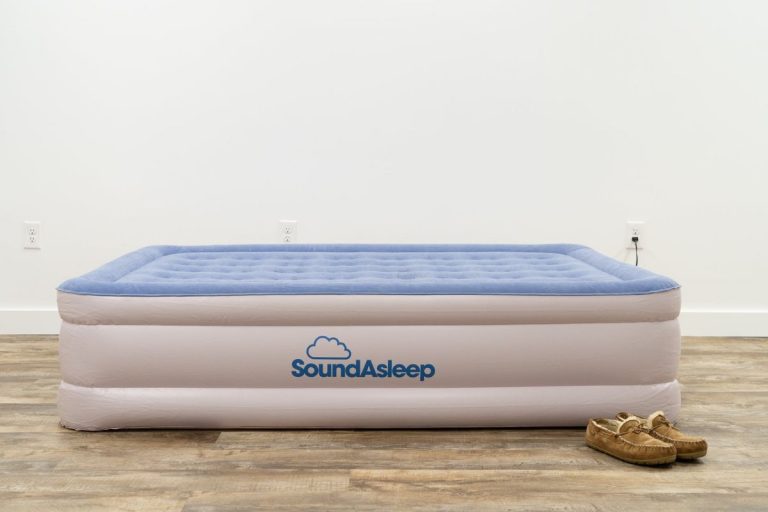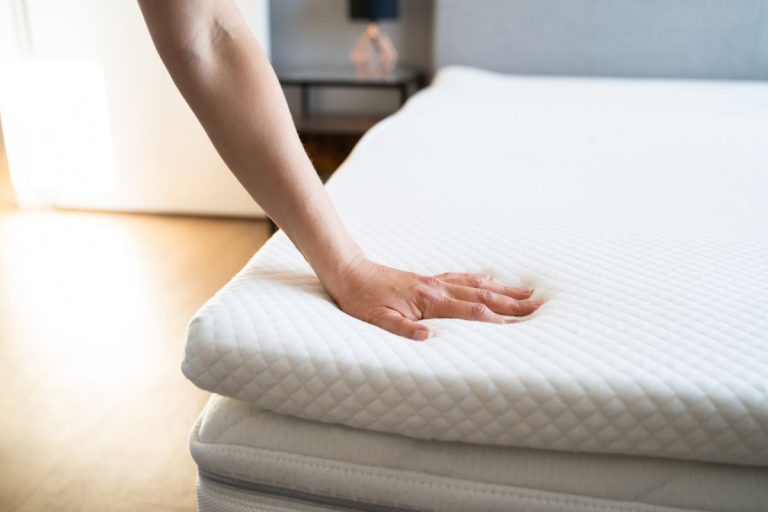Every pregnant woman knows the fiery discomfort that is the burn. Amidst the back pain, the fatigue, and occasional nausea, heartburn is another regular complication that women face during pregnancy.
Major inconveniences that come with heartburn include a burning sensation and general discomfort in the digestive canal, constant sweating, and sleep disruption. Consequently, heartburn can exacerbate fatigue in pregnant women, significantly upsetting their general wellbeing.
What Causes Pregnancy Heartburn
Heartburn represents one of the most prevalent causes of nighttime discomfort and disruption of sleep in pregnant women. During most pregnancy, the second and third trimester is especially precarious, as here up to two-thirds of pregnant women can suffer frequent acid refluxes of varying intensity.
This uniquely high ratio of heartburn occurrence in pregnancy unsurprisingly stems from the physical and hormonal changes that the body undergoes during pregnancy.
While most cases of pregnancy heartburn are due to natural causes, the condition may be triggered by lifestyle choices like alcohol overuse, overeating, consuming spicy food, or wearing tight articles of clothing, especially around or during bedtime.
Hormones like progesterone and relaxin cause a relaxation of body muscles to better facilitate the growing fetus. When this relaxing process extends to the lower esophageal sphincter, muscle that ensures that stomach contents stay in the stomach, this opens the door for acid reflux and the associated discomfort and sleep disruption.
Furthermore, as the fetus grows, it pushes against the stomach, creating more compaction, and increasing the ease with which acid reflux can happen.
Heartburn occurs when the lower esophageal sphincter, a muscle that ensures that stomach contents stay in the stomach falters by relaxing or springing a leak. Consequently, digestive acids in the stomach can begin to flow upward into the esophagus.
This upset brings a burning pain and intense discomfort in the mid-chest or upper-chest area and can sometimes extend to the neck or throat. Furthermore, when lying down, gravity can help the disarray along, worsening symptoms, and disrupting sleep.
If you are an expectant mother battling with menacing heartburn, you are not alone. Pregnant women have significantly higher chances of suffering heartburn than the rest of the population, as at least half of all pregnant women report cases of heartburn during their pregnancies.
However, applying the following vital tips, and medication in severe cases, can help reduce the symptoms of pregnancy heartburn considerably and help pregnant women sleep better and live happier lives.
Here are 8 tips for dealing with and preventing frequent heartburn during pregnancy.
Sleep Solutions for Pregnancy Heartburn Relief
#1 Sleep on a Raised Plane
With meals that are to your bedtime, the fact that you are lying down soon after means that you face a significantly higher chance of suffering heartburn and sleep disruption.
However, you can counteract this effect by adjusting your bed to shift your body into a more vertical position. This added incline makes it harder for stomach acid to travel up your esophagus.
Ways to achieve this elevated sleeping position include:
- Getting an adjustable bed mounts that lets you increase the elevation of one side to set the bed angle
- Adding more pillows underneath your upper body for increased elevation
- Using a pregnancy wedge: a custom-made pillow that slants your upper body upwards
- Increasing the height of your bed by placing books or other stable wedges under the top legs
Avoid lying down immediately after a meal and opt instead for a walk, some housework, or reading a book while sitting down to give your stomach acids time to settle.
#2 Sleep on Your Side
The American Pregnancy Association recommends sleeping on your side as the best sleeping position for expectant mothers, and this advice holds for pregnancy heartburn relief as well.
side sleeping is the obvious choice for maximum comfort and better sleep because:
- Sleeping on your back increases the risk for complications like digestive issues and heartburn, hemorrhoids, backaches, decreased circulation, and breathing problems
- Sleeping on your stomach is an almost impossible feat in mid to late pregnancy
Besides keeping you at your most comfortable, side sleeping also significantly increases the flow of nutrients and blood to the placenta, hence, promoting baby health.
However, sleeping on your side may be harder for people who are unaccustomed to this position. If you fall into this category, you can ease the transition to side sleeping by:
- Keeping your knees and legs bent for a more cradling feel
- Placing a pillow between your legs for added comfort
- Using a pregnancy pillow for added support.
Know more about sleeping position:
- The Best Sleeping Positions to Wake Up Pain-Free
- The Best Sleeping Positions for Lower Back Pain
- The Best Sleeping Positions For Shoulder Pain
- The Best Sleeping Positions for Sciatica
Recommendation
The American Pregnancy Association also recommends:
- Sleeping on your left side, as it is more aligned with the anatomy of a pregnant woman
- The Slumbar Bump Pregnancy Pillow
#3: Use A Pregnancy Pillow
With a growing bump, finding comfortable sleeping positions can get significantly challenging. Furthermore, for pregnant women who seasoned back sleepers and stomach sleepers, adhering to the recommended side sleeping position can prove to be an even more impossible challenge.
Here, a pregnancy pillow can come in quite handy. Pregnancy pillows like the Slumbar Bump pregnancy pillow provide extra cushioning that can significantly increase your comfort level and ease your transition to side sleeping.
The right pregnancy pillow should provide the extra support you need around your belly, knees, and ankles, ensuring you get the best sleep possible.
Read More:
#4 Practice Good Sleep Hygiene
Whether you are pregnant or not, a good sleep routine is a must-have as it helps prevent complications like heartburn, while providing myriads of other health benefits.
Furthermore, the faster you fall asleep, the lower your chances of suffering heartburn, as deep sleep helps to inhibit the mechanism that triggers acid reflux. Hence, optimizing for faster and deeper sleep is an effective sleep solution for pregnancy heartburn relief.
Some effective habits to implement to increase your chances of falling asleep quicker and staying in a deep sleep for longer include:
- use comfortable pillows and mattress
- establish a steady sleep schedule
- exercise daily
- reduce the frequency of naps during the day
- take a warm shower before hitting the sack
- give yourself an hour or two free from electronic devices to wind down before bed.
Read More: 8 Useful Tips: How to Reset Sleep Schedule?
#5: Use a Humidifier
One lesser-known hack that can significantly accentuate your sleeping experience is to introduce a humidifier into your bedroom. Humidifiers can help to make the air easier on your nasal cavity, enhancing comfort and promoting better sleep.
Furthermore, keeping the air moist is especially crucial with pregnant mothers, as hormonal fluctuations during pregnancy often lead to a significant increase in blood volume. This rise in the amount of blood sometimes causes mucous membranes in the nose to fill with blood, swelling, and potentially causing breathing difficulty and sleep disruptions.
Using a humidifier can also help combat snoring during pregnancy.
While snoring is a common occurrence during pregnancy, incessant snoring may be signs of sleep apnea or gestational diabetes, and you should consult with your practitioner for safety reasons.
Read More:
How Does Sleep Apnea Impact the Brain?
Does a Humidifier Help with Snoring?
#6: Darker is Better
One of the most effective ways to reduce your chances of suffering from pregnancy heartburn is to fall asleep faster and enter deeper sleep quicker. Deep sleep inhibits many potentially excitable processes in the body, including some of those that cause heartburn.
A surefire way to speed up your journey into deep sleep is to keep your bedroom as dark as possible. Incorporate darker blackout curtains, cut out digital electronics, and eliminate as many light sources as you can.
You can also add in elements like earplugs, eyeshades into your sleep gear to promote a more immersive sleeping experience.
#7: Try White Noise
For some, using a white noise-producing sound machine can block out distracting noises, helping them fall asleep faster, stay asleep for long, and enjoy extended deep sleep.
Staying in deep sleep is one of the best ways to ensure you stay in position through the night and do not roll around, which can significantly increase your chance of experiencing heartburn.
#8: Optimize Your Room Temperature
Ensuring that you are as comfortable as possible reduces your need to toss and turn during the night, actions that can increase the risk factor for heartburn episodes.
And one of the best ways to maximize nighttime comfort is to ensure that your bedroom is in a cool, calming state that fosters rest. Essential properties to check for include temperature, which should be around a cool 60-67°F



